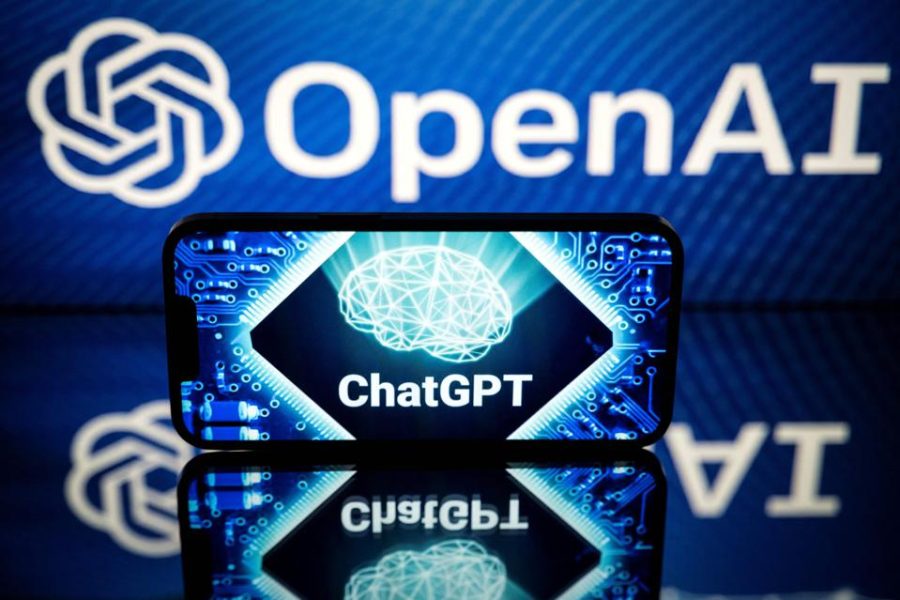Is ChatGPT Taking Over Education?
Artificial intelligence is taking over the screens, and curiosities, of students around the world. The trending website was officially created in late November of 2022, and offers a site where anyone can pose any question or direction and receive in return a typed response giving relatively precise answers. Although this can be an extremely helpful tool, it is has also raised concerns that students might abuse this new technology, as ChatGPT could offer an answer to almost anything regarding schoolwork, and even go so far as write class essays or answer math problems. This misuse could offer high school students an easy way out of school work when they do not feel like completing their assignments themselves.
USA Today has discussed some of the potential dangers that could arise from artificial intelligence, stating that “the chatbot…‘produc(es) harmful instructions or biased content.’” Another issue includes that ChatGPT only has “‘…limited knowledge of world and events after 2021.’” Not only would students using ChatGPT be faking their own work to complete assignments, they also risk relying on inaccurate information, which will undoubtedly end up harming their schoolwork, and overall learning, in the end.
This issue could not only become prevalent in high schools internationally, but could be even more of a problem in universities and higher education. Professor Darren Hick at Furman University in South Carolina expressed his concerns after catching a student using artificial intelligence to write a 500-word history essay. The student, “failed the class as a result,” and was “turned over to the school’s academic dean.” Professor Hick’s experience does not overexaggerate the harsh consequences which students could face when using ChatGPT to cheat on their work. And, as Hick would discover following a Facebook post researching artificial intelligence, this was not a solitary event – cheating in such wise has become an international crisis for teachers and fellow university professors.
Of course, ChatGPT is not something which can simply be forbidden; society must learn to adjust to such a technological advancement. A New York Times article acknowledges this idea, stating, “Tools like ChatGPT aren’t going anywhere; they’re only going to improve, and barring some major regulatory intervention, this particular form of machine intelligence is now a fixture of our society.” In a scenario such as this one, however unprecedented it may be, educators and students must inevitably find a middle ground where they can work together to continue their learning in a healthy way.
Artificial intelligence is incredibly dangerous if students continue to use it to cheat and minimize their work effort – both due to the potential consequences to students’ learning and their futures. Despite this, if America, and the world as a whole, can learn to adapt to this new online invention with a better mindset, one that incorporates ChatGPT as a beneficial tool into the learning process – and not as simply a way to cheat – then the public may be better off in the long run.

Emma is a current senior who is so excited to continue being a section editor in her third year writing for the Banner. Outside of writing Opinions articles,...


